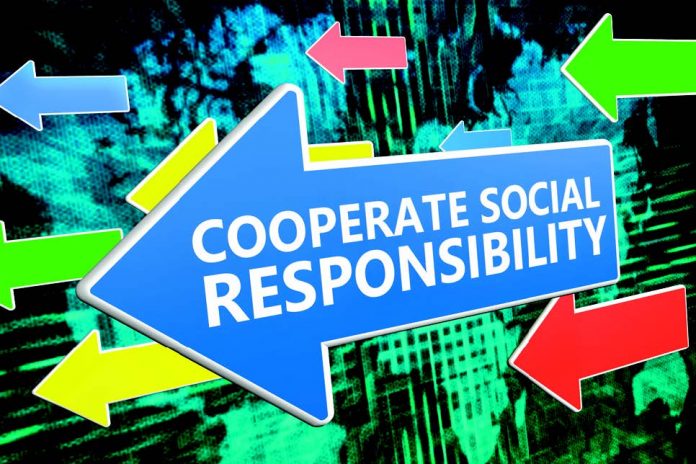The concept of Social Responsibility is the ideology that individuals have a commitment to the communities in which they operate and or do business. Social Responsibility encompasses the workplace, quality of management, employees, unions, customers, shareholders, marketplace, financial analyst, environment, government, and the local and global community. All of these areas and more are part of the concept of social responsibility.
Social responsibility alludes to an ethical theory in which individuals are accountable for fulfilling their civic duty, and the actions of an individual must benefit society as a whole. If equilibrium is maintained between economic growth and society’s welfare, then social responsibility is accomplished. www.pachamama.org
Consumers aren’t the only ones drawn to businesses that give back; many millennials and Gen-Xers look at a company’s sustainability strategy when choosing careers. Katie Schmidt, the founder and lead designer of Passion Lilie, said companies that implement Corporate Social Responsibility (CSR) stand to benefit in multiple ways. “What the public thinks of your success is critical to your success,” says Schmidt. “By building a positive image that you believe in, you can make a name for yourself as being socially conscious.
“A robust CSR program is an opportunity for companies to demonstrate their good corporate citizenship…and protect the company from outsized risk by looking at the whole social and environmental sphere that surrounds the company,” said Jen Boynton, CEO of B Targeted Marketing Company.
Research by Cone Communications found that 60% of consumers hope businesses will drive social and environmental change in the absence of government regulation. Nearly 90% of consumers surveyed say they would purchase a product because the company supported an issue they care about. More importantly, nearly 75% said they would refuse to buy from a company if they learned a company supported an issue contrary to their own beliefs.
Improving brand image and employee morale are two of the benefits of CSR for any organization. When customers or clients see evidence of social responsibility, they tend to respond positively. Employee morale tends to be sustainably higher at companies that invest clear effort and resources into ethical and socially responsible behavior. https://www.businessnewsdaily.com
Social Responsibility and Ethics
Ethics refer to a set of moral principles that govern a company or person’s behavior. Companies should incorporate ethics into their daily actions, particularly those decisions that affect other people or the environment. A code of social responsibility and ethical behavior should be applied within an organization as well as during interactions with others outside the company. As long as the company upholds strong ethical standards and maintains social responsibility within the company, then the environment and employees are held as equals to the focus on profitability. However, if the company ignores its ethical standards and takes actions that are socially irresponsible, such as disregarding environmental regulations to increase profitability, then government interference is often necessary.
Businesses have a responsibility towards the communities in which they do business. In the era of social consciousness on all levels of society, consumers, corporate entities, and business owners are all looking to invest in and sustain Corporate Social Responsibility.


